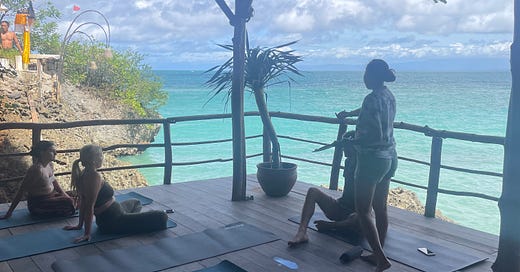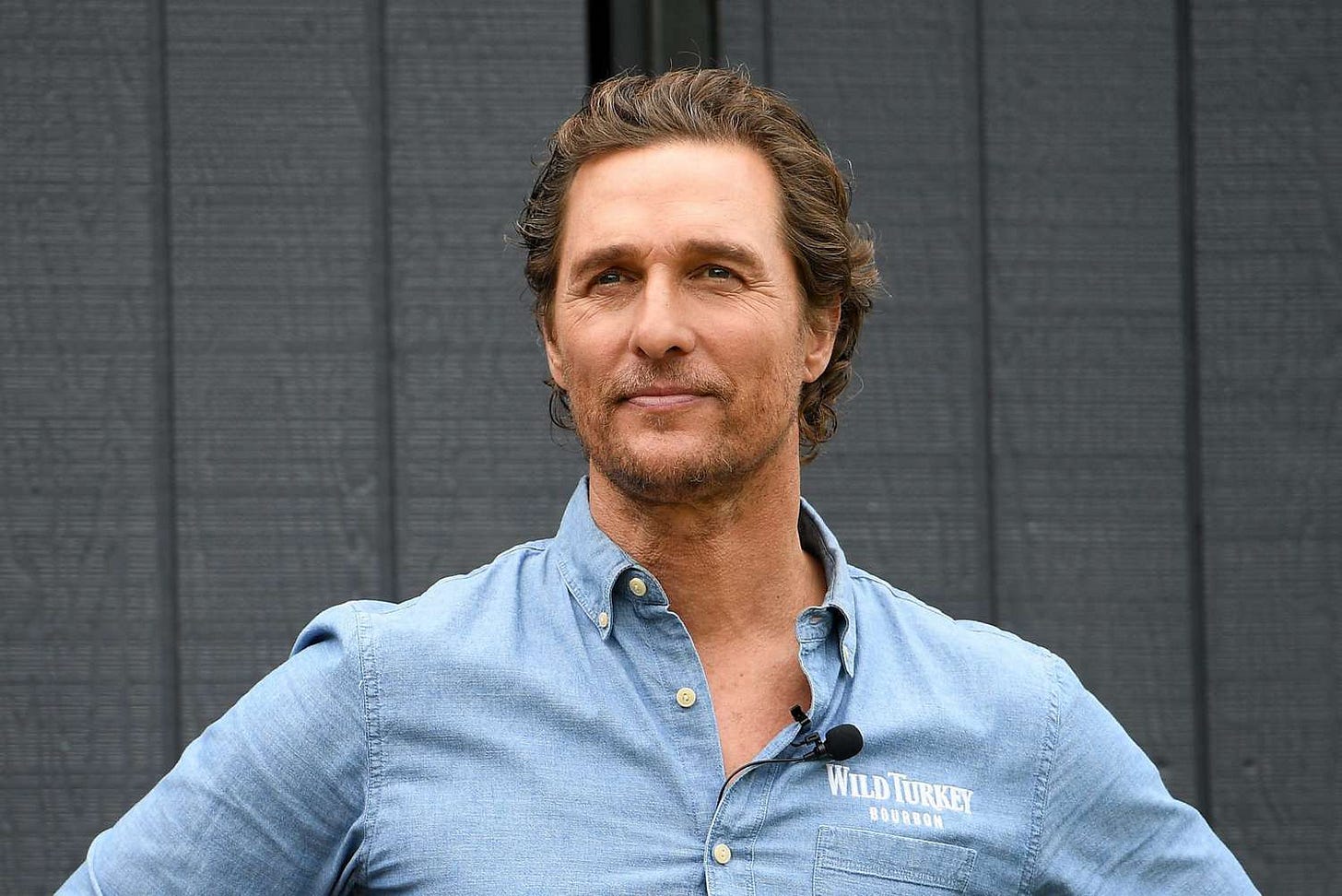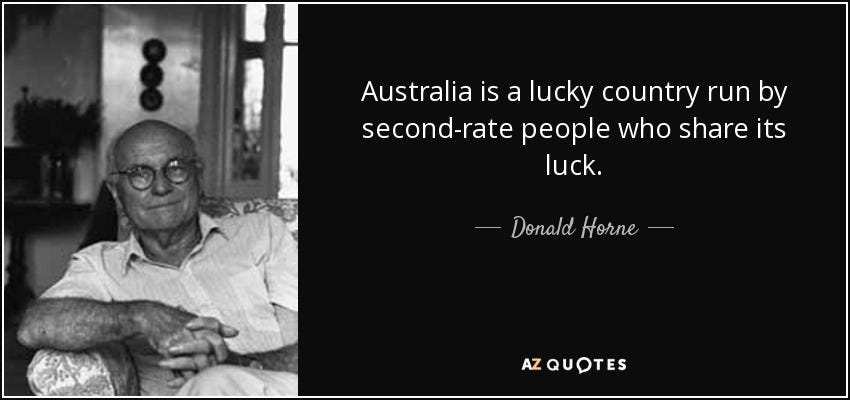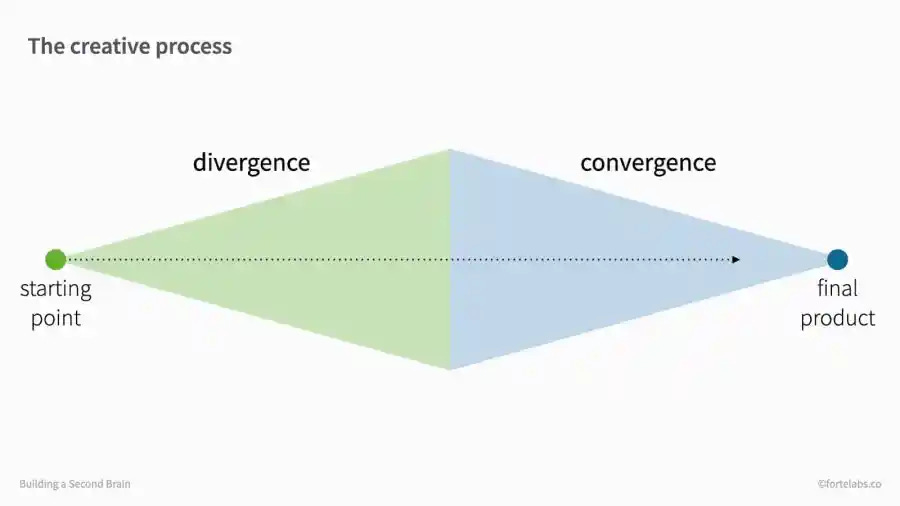I’m writing this much later than expected! One of my goals for this year was to publish writing every 2nd week but I’ve failed miserably at that. Whilst I’ve been writing a lot in private reflection (in Bali I was writing thousands of words a day), this is my first few words to the world for this year.
My excuses for not writing have been 1) I’ve had a busy start to the year (horrible excuse) & 2) I’ve been busy falling in love (pretty good excuse). The reality is that I just got lazy with it once I passed my artificial deadline.
What has this year been like so far?
My year so far can probably be divided into the following parts
An amazing time in Bali. Fun with friends, exploration on motorbikes through beautiful scenery, meeting new people, surfing.
Think week in Bali: I spontaneously decided to do a week of reading, thinking and reflecting by myself in Bali. This was *very* impactful.
Getting super sick from Bali: when I returned home, my progress was absolutely stunted from the worst sickness of my life which lasted around 10 days
Love in Bali: I happened to meet a girl in my last week in Bali who was just amazing and we connected on a deep level very quickly. She lives in Monaco but she’s now staying with me here in Sydney.
Getting back into the grind: getting stuck into my goals and Sydney life post-Bali.
I do apologise if I’ve said the word Bali too much. My friends make fun of me for apparently being a basic ‘Eat Pray Love’ type character, but man, I really loved that place and had such a great time on so many levels.
Dreamsea Uluwatu. Here are a few more photos if you’d like to peruse.
How I’m living this year
So I did a lot of reflection on my think week and I found it an immensely valuable experience. My main goal for the week was to think from the ground up, or from a first principles approach, about how I wanted to live my life and to reflect on worldy ideas that had significance to me.
Having the space, time and quietness to not be in a rush but to just spend time thinking and reflecting is such an enrichening experience. It will be something I do for the rest of my life. I am honestly shocked that we don’t have a cultural norm of everyone jetting off 4x a year for a weekend away by ourselves to reflect on our lives and the world. We can get such a great understanding about ourselves and what we want just from sitting quietly by ourselves.
So something I’d like to do in my life is to set up a mind-body-spirit retreat where people go away for a weekend to intentionally reflect on questions of importance, to get in touch with themselves and to focus on health and fitness. I’ll probably set it up 1.5 hours away from Sydney so you can leave on a Friday night and come back on a Sunday night. It will have communal elements to it and thoughtful online discussion groups that you can use to keep yourself accountable in between retreat trips.
I actually have a number of friends who are setting up retreat models so It’s something I’m going to investigate into deeper. Bali is a great place to do this also due to cheaper construction and labour costs and a tourist population that is inclined towards these types of activities. Though this stuff is already quite common there.
Back to the point of how I’m living this year
So I had thousands of thousands of words of writing and reflection from my trip so I’m not going to summarise everything here. I will say three things about my life post Bali.
I want to engender more clarity into my life. Seeing more clearly what are the things that I want and the things that are important to me. Decreasing noise, unnecessary activity but hone in on the things that matter.
I want to live more intentionally. I plan to be more thoughtful about the content I consume, the exercise I do, what I spend my time on, who I spend my time with.
Expression. I want to express my true thoughts and feelings more often to a more broad audience. In order just to express, but also to test and validate/invalidate opinions/ideas.
Goals this year
These are my goals for the year.
The career transition one is pretty obvious. If you know me well, you know I have an itch to be investing or working in startups. I’m exploring multiple possibilities at the moment and talking to folks. I have time and patience on my side and I want to make the right decision.
The monetisation goal is going well. We have one current sponsor and around 8+ warm leads. We need to put more hustle in this. Making money will help us be more efficient with our time so we can produce more content. We also want to do a podcast tour of America in Feb 2024 so we need to save money for this!!!
Trail run is on. I think I’ll do the Kozi 100km trail in December, happy if it happens not by August. I have to seriously start training now though. I’ve been enjoying my nature runs with friends lately but I need to get more serious.
I’m canning the film goal. It’s just not high enough in my priorities to warrant spending the time doing it. But I do love the inspiration I get from great films.
Writing. I’ve been writing a lot but I need to do it in a more structured way and in public.
Greenlights by Matthew McConaughey and The Creative Act by Rick Rubin
I came into the new year having just finished one of my favourite books in the past year: Greenlights by Matthew McConaughey. If you’re close to me, you would’ve had experienced me raving about this to you.
I read a lot of books based on people in the business world. High-flyers in finance, analysers and investors of technology, entrepreneurs. Often the highly analytical, supremely rational types.
Life is very structured in much of their minds, decisions coming down to cold hard analysis from the brain, internal mathematical models driving many of their actions.
It’s about optimisation, winning in an external game, competing.
But lately I’ve been inspired by a new brand of thinking or a new type of person: The artist-philosopher business person.
I was utterly inspired by Matthew McConaughey and how he approached life. He leads with his intuition, his heart, the whispers of his soul. So many of his decisions come from deep within him, not listening to external factors. Willing to go against the grain and willing to go against what was possibly rational at the time.
This type of thinking isn’t exactly celebrated in the modern world. We are analytical, optimising, hate the irrational. But the ones that do great things, creative things, are the ones that lead from the heart. It’s not that he didn’t use the analytical, rational part of his brain: he sure had to achieve in acting and navigate the Hollywood social system. But it was conjoined so perfectly.
Rick Rubin exemplifies this beautifully as well. He’s been on a whirlwind of a podcasting tour lately and I’ve watched many, but the video I loved the most was his short 60 minutes interview. The man leads with feelings, his internal insights, he expresses his truth on the world, he preaches loud.
I’m trying to create more space in my life for expression and creation, for consuming less content, for trying to not always be hyper analytical and abiding by a rigorous schedule. It’s very difficult in the modern world and especially if you are in the corporate/investment world, but I have a hint that following the way of the artist could be beneficial for everyones life.
So based off these two figures, I want to more frequently live a life of intuition. Following those deep whispers of my soul. When my soul yearns for something, actually allow myself to follow it and drop off from the structured path of that moment. And I want to express myself more. Feelings.
Vision and the Lucky country
I had a very long chat with a good friend of mine on Sunday morning about the idea of vision. She is pursuing an idea in a space that has to do with helping individuals and companies understand, expand and express their vision.
It’s one of the most impactful things that you can do. It doesn’t take extra effort to live life with an enlarged and deeper vision. You can expand the size of your ambition at no extra cost. It just takes a bit of boldness and guts.
All the great people of the world had a creative visionary streak to them, as well as being excellent operators (able to do the work and meet the outcomes). You can think of entrepreneurs like Steve Jobs or remarkable politicians like Nelson Mandela.
We talked about a range of things, like how theres a spiritual/emotional/psychological side of us we need to tap into to truely access what our vision could be, how certain physical spaces and nature can imbue inspiration for creating a vision and generally how society can promote visionary people.
We agreed that Australia doesn’t distinctly promote visionary people. I’m currently reading The Lucky Country by Donald Horne and it speaks to this. He talks about Australia as a nation that lacks ideas, vision, ambition, innovation, and for a long time has relied on economic luck. A nation where being out of the ordinary is criticised and where if you are an outlier, you are often cut down.
This book was written in 1964 and obviously a lot has changed in the Australian business and society, but I believe that some of the messages about our cultural attitudes will still ring very true.
I’m not sure I necessarily agree with this yet, but I think reflecting on the ‘lucky country’ part is important.
Property Development
Growing up, property developer was a dirty word. It’s probably a mix of my anti-capitalist dad and the poor cultural image of them in the media, but few young people tend to trust them.
I’ve had an odd shift in me, I have undeniable respect for them.
People that have a vision, turn it into a plan, and build something that is physical, obvious and actually there. Something that people can admire for its aesthetics, something that can change people, people can live in it, it can contribute to a community.
The entrepreneurship community is focused on tech these days and values tech startups accordingly. But I think we should give more praise to property developers who create the most fundamental thing: buildings that we look at, walk into, live in.
It’s creation at one of its most raw forms.
So when I did my Bali reflection and tried to look at my life from the ground up and thought about what I wanted to do in the world; I added a few things to my life list. I want to be a property developer of aesthetic and important spaces. I also want to create a series of documentaries. That is outside of my primary interest of wanting to pursue investing and creating impactful, early-stage technology companies.
When it comes to this space, I am inspired by Justin Hemmes, Tim Gurner, architect Alexis Dornier and I’m reading Sam Zells autobiography.
I’ve been absolutely obsessed lately with the architecture of Alexis Dornier who creates amazing houses in Bali. I have huge admiration for people that design, build and develop beautiful properties. What is more fundamental than bringing into the world physical phases where we can work, live, enjoy, create? You can see more of his work here: https://alexisdornier.com/
Questions around Venture Capital
I’ve been talking to a lot of VCs lately through the podcast.
A question I’m very interested in is how VC’s are going to differentiate themselves in the future. When there is increasingly more money being poured into the asset class, more funds popping up and some advantages are being eroded through technology, how does a firm be different?
I think a lot of firms will have a lot to answer for themselves about how they can be truely unique and have their own authentic advantage. The answer that I keep on hearing is that there will exist mega funds that have a full-stack of services and then much smaller funds and solo GP’s that are highly specialised. And that a lot of the funds in the middle will eventually die out, due to a lack of differentiation and not being the best in any one vector.
What are going to be the areas in VC that surprise us with their success and returns in 10-20 years time? It seems like there are a number of areas where there is almost deterministic success. Climate and AI may be two. The world is heading towards net-zero and businesses need to act accordingly. The cost of compute is going to keep on going down and language models and the like are just going to keep on getting better. I find it very difficult to think that those thematics will not certainly produce billon dollar companies at an increasing rate. But of course, where the success is more obvious, more competition and more money will be pouring in, hurting returns.
What are the other areas? Education and health are obviously areas that are ripe for disruption, but the chance of those sectors *fundamentally* changing or innovations really challenging the status quo seems much less likely due to the way those industries are structured and the incentives at play.
China and SEA
I’ve become increasingly interested in South East Asia. Their demographic situation, their economic progress and the technology world there.
I do wonder if there is going to be a progressive shift of connection and trade with that area and Australia over the next few decades, while the opposite happens with China.
Considering geopolitical situations, China’s looming demographic problems and rising labour costs there, it may make sense that Australia increasingly sees the world as more SEA oriented.
Content & Recommendations
The other night I got inspired by an idea to create a personalised ‘substack reader’ style website where you would have a feed that would give you content recommendations. Sort of like the Tiktok of long-form essays.
Information is so much more dispersed nowadays. For example, in the tech field, for insights I’m not going straight to the AFR or the WSJ, but I love to read annual letters from funds like Social Capital, blogs from VC companies like Lux Capital, smaller tweet storms and posts from founders. But this information is so dispersed and I receive it in a messy way through twitter, my email inbox, friends. I’d love a feed that could just update me on all my favourite topics.
I was pleased to know that the Instagram founders have recently created this and its called Artifact. It’s sort of Apple News but with a wider content selection and better recommendation. I’m going to be digging into it deeper and I’m excited for a world that can better organise the masses of information out there that suit my taste.
A nice thing to reflect on
This one doesn’t need much explaining. I’m thinking about the concept of Ikigai and I think it’s a good framework to reflect on if you are thinking about the world and how you want to act within it.
Convergence and Divergence
I haven’t reflected on the idea of diverging-converging in a while but I was having coffee with a friend on Sunday morning and she was telling me how she was in a divergent phase. She’s working on a new startup idea so she’s in a field of exploration at the moment, taking in all the ideas that she can, then she plans to converge soon.
I thought it was a pretty powerful frame to understand the period of life you are in. Most of us are naturally attuned to being majority a convergent or divergent person. Some of us stay on very structured paths with few deviations and some of us take in dozens of ideas a day, start a visionary 0-1 approach, but never really stick with something.
My hypothesis is that the world’s best creators consciously go through extreme divergent and convergent periods (with mini waves of convergent-divergent behaviour in one macro period). They sometimes take off months to go divergent on a new idea, bringing life to it, testing it. Then when the time is right, they knuckle down and know when to hustle.
I really want to read more about people’s journeys as they crossover from divergent to convergent behaviour.
Housing Price Crisis
Sydney obviously has a housing price crisis. As a proportion of our income, housing prices have never been higher and buying a house for young folk constantly seems out of reach.
Naturally, we then talk about ways to solve the housing crisis. Most of our measures have to do with temporary measures that end up increasing demand (actually making the crisis worse in the long-run) and most people are knowledgeable that any real solve of the crisis has to do with increasing supply.
But if we increase supply in a meaningful way, then naturally we’ll be decreasing the average house price. On a nation that traditionally has been so geared towards property as a vehicle for wealth creation, I just can’t see that working. You’ll be hurting the people with the power (the homeowners) who would obviously lobby the government otherwise.
So if its unlikely that there will be measures that will meaningful dampen prices in the long-run, the only real solution is to build new cities? Cities that exist outside of the current market so are not faced by the same price pressures. Of course they don’t need to be entirely new cities, they can just be increasingly away from the CBD.
This is a research topic I want to lean into more this year. Understanding from first-principles why Sydney got this way, what the alternatives are and how we can build new cities.
Content
Apart from the books already mentioned, here is another book and a few newsletters that I’ve really liked lately
Sam Zells autobiography. He was a real estate titan but the start of the book has a really interesting story about his parents emigration from Poland to the US. And through this book I first learnt about the brilliantly courageous and inspiring story of Chiune Sugihara who “helped thousands of Jews flee Europe by issuing transit visas to them so that they could travel through Japanese Territory, risking his job and the lives of his family”. If you’d like to learn about how to take hold of opportunities in commercial property investing & hear about a fascinating story of emigration, then I highly recommend this book.
I highly recommend Fifthwall VCs newsletter about proptech and decarbonisation through property. This is an important thematic that I don’t think people pay enough attention to: https://fifthwall.com/insights#?category=3
I highly recommend The Transcript which does insights from earnings calls. There are few greater ways to understand what is happening in the broader economy than to focus on the commentary and data from companies: https://twitter.com/TheTranscript_?ref_src=twsrc%5Egoogle%7Ctwcamp%5Eserp%7Ctwgr%5Eauthor
Food for thought
What will be the most valued skills as AI becomes more powerful?
Is globalisation going to continue to increase?
How can you test for resilience when hiring someone?
Is Onlyfans morally right?
What makes for a great conversation?
What will the average building look and feel like in 100 years?
Once we go to Net Zero in Australia, what happens to the productive coal reserves still in the ground? What about applying this to the whole world?
If you found any of this interesting or just want to chat, reach out. I am constantly trying to level up!











Hey Adam loved this! I saw you cop some heat the other day from some random beach based “VC” on Twitter, and while you dealt with it in an unflappable manner showing far more life experience than your detractor I wanted to reach out to say 1) when someone who isn’t close to you chooses to criticise you in that manner it says nothing about you and is purely a reflection of themselves; and, 2) the vulnerability, passion, and thoughtfulness you exhibit will no doubt set you up for great success in life, and personally, from someone who isn’t great at putting themselves out there, I find it inspiring. I have no doubt that these qualities will lead you to great success in life. Can’t wait to see what you achieve. All the best for 2023 and beyond!